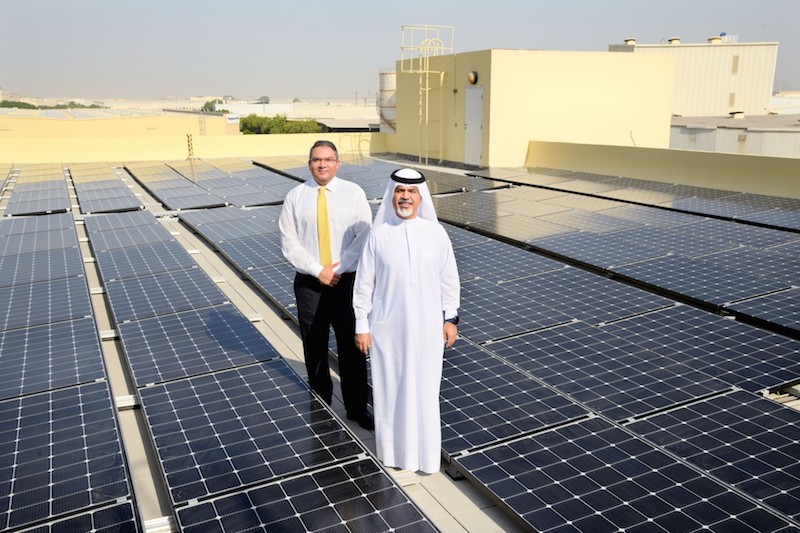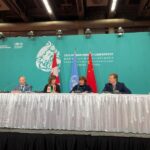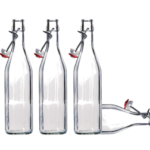
Dubai (TAN): Emirates Flight Catering (EKFC) has successfully commissioned a state-of-the-art solar power system across its premises, which is expected to deliver an annual reduction of 3 million kg of greenhouse gas emissions, an official statement said.
EKFC’s latest initiative supports the Dubai Clean Energy Strategy 2050, under which the Emirate aims to produce 75% of its energy requirements from clean sources by 2050.
Sheikh Ahmed bin Saeed Al Maktoum, chairman and chief executive of Emirates Airline and Group, said, “Sustainability is an important pillar of the Emirates Group strategy. We are committed to responsible business and environmental stewardship, and we apply eco-efficient technologies across our operations to minimise our impact even as we continue to grow. Emirates Flight Catering’s latest initiatives open new opportunities to improve resource efficiency, underpinning Dubai’s strategy to become a global centre of clean energy and green economy.”
[ALSO READ: Thomas Cook collapses after last-ditch rescue deal fails to work out]
Saeed Mohammed, CEO of Emirates Flight Catering, said: “Our state-of-the-art solar power plant helps us further optimise resources and enhance environmental efficiency, which will benefit all of our stakeholders, including our customers, employees and the communities around us.”
EKFC’s solar rooftop power plant comprises 8,112 individual solar panels. It is expected to generate 4,195 megawatt-hours of electricity annually, allowing the company to reduce traditional energy consumption by 15% across its laundry, food manufacturing and staff accommodation facilities. Consequently, EKFC’s carbon dioxide emission will decrease by 3 million kg annually.
EKFC will shortly start constructing the world’s largest vertical farming facility in a joint venture with US-based Crop One. The 130,000 sqft controlled environment facility will produce 2,700 kg of high quality, herbicide-and-pesticide-free leafy greens daily, using 99% less water than outdoor fields. Its location will enable quick delivery of fresh products within hours of harvest, maintaining the food’s nutritional value and reducing carbon emissions associated with transportation. The first products are expected to be delivered to Emirates Flight Catering’s customers in 2020.
[ALSO READ: IFC loan to support sustainable tourism in Vietnam and Laos]
EKFC runs a comprehensive recycling programme, the statement said, ensuring recyclable items, including plastic bottles, aluminium cans and foil, are separated from galley waste after they are removed from the aircraft. The company also has all cardboard packaging and office paper waste recycled into new paper products.
Every month, EKFC diverts over 270,000 kg of material from landfill and ensures the recycling of 130,000 kg of cardboard, 4,000 kg of paper, 14,000 kg of aluminium cans and foil, 120,000 kg of glass bottles and 10,000 kg of plastic bottles, the statement added.
[ALSO READ: Alaska Airlines asks flyers to bring their own bottle to cut plastic waste]
Emirates Flight Catering is one of the world’s largest catering operations offering airline, events and VIP catering as well as ancillary services including laundry, food production and airport lounge food and beverage. Each day, the company’s 11,000 employees prepare an average of 225,000 meals and handle 210 tonnes of laundry.




